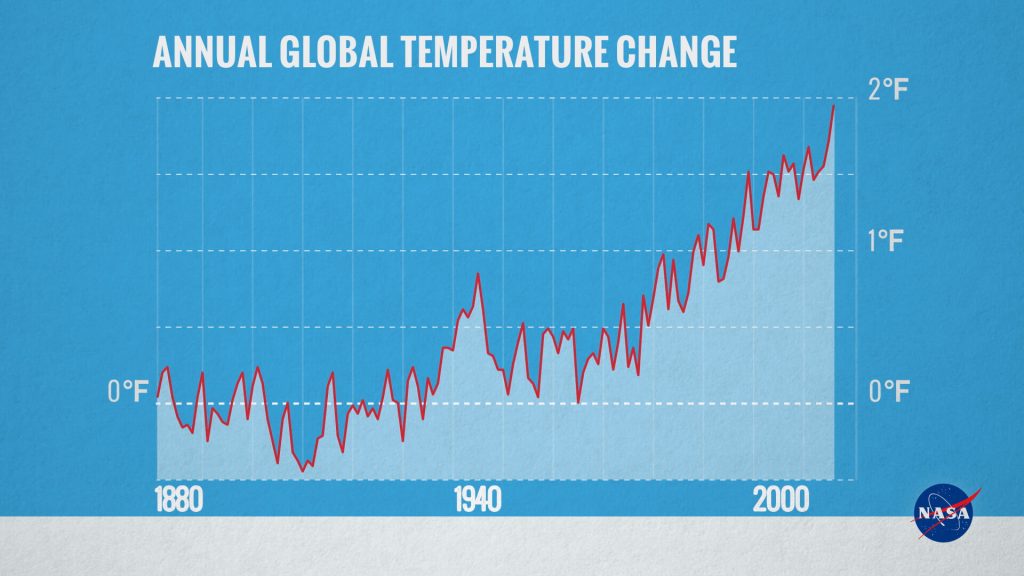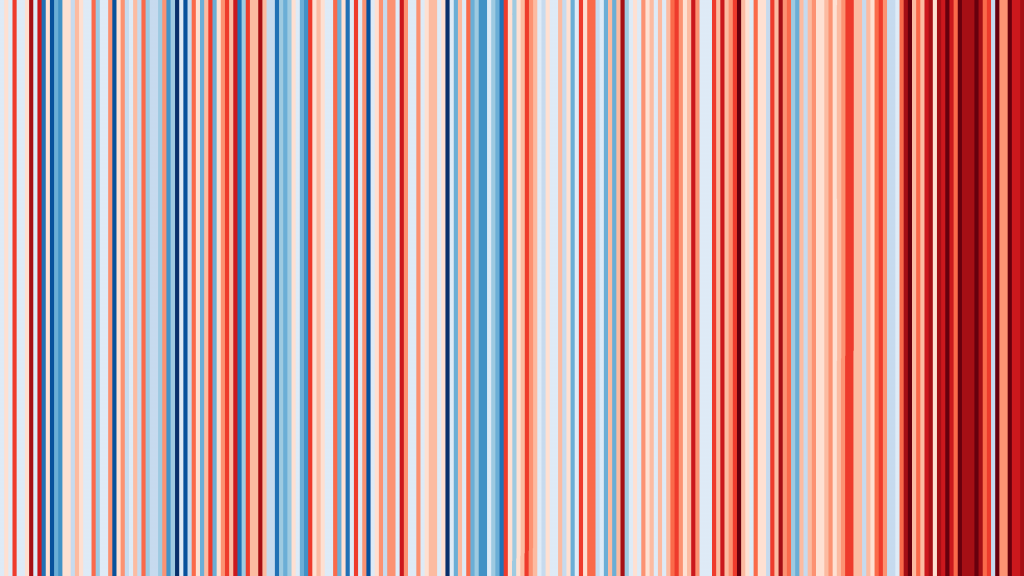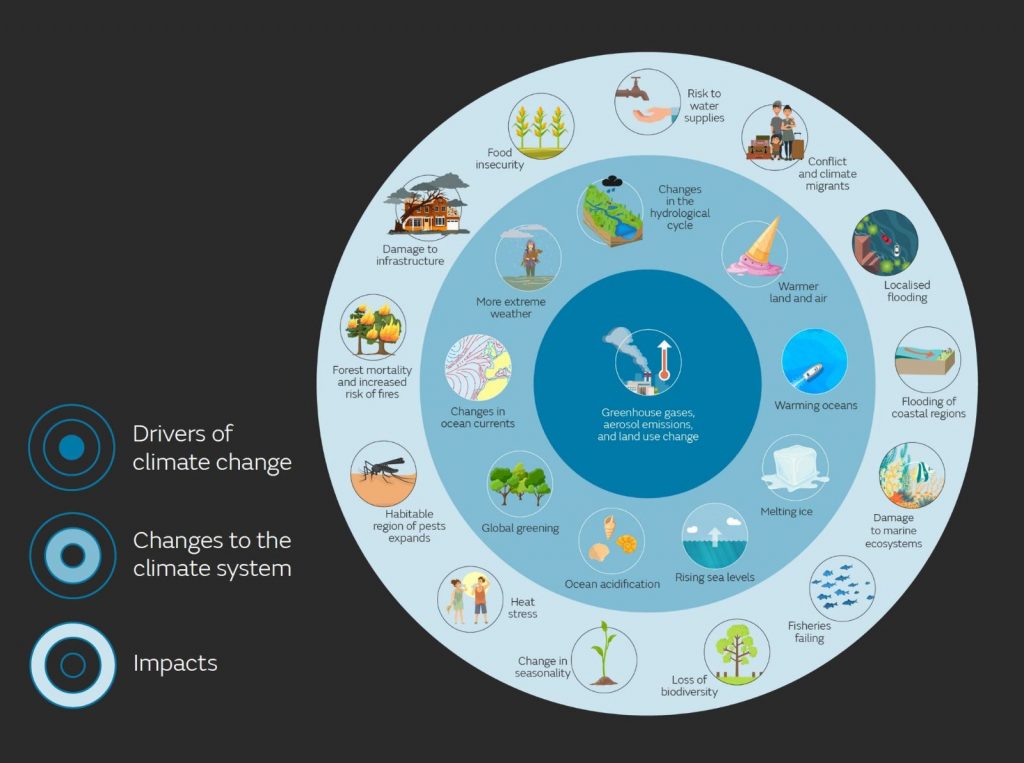Global climate change refers to the average long-term changes over the entire Earth. These include warming temperatures and changes in precipitation, as well as the effects of Earth’s warming, such as:
- Rising sea levels.
- Shrinking mountain glaciers.
- Ice melting at a faster rate than usual in Greenland, Antarctica and the Arctic.
- Changes in flower and plant blooming times.
- Earth’s climate has constantly been changing — even long before humans came into the picture. However, scientists have observed unusual changes recently. For example, Earth’s average temperature has been increasing much more quickly than they would expect over the past 150 years.

What Causes Climate Change?
- There are lots of factors that contribute to Earth’s climate. However, scientists agree that Earth has been getting warmer in the past 50 to 100 years due to human activities.
- Certain gases in Earth’s atmosphere block heat from escaping. This is called the greenhouse effect. These gases keep Earth warm like the glass in a greenhouse keeps plants warm.
- Human activities — such as burning fuel to power factories, cars and buses — are changing the natural greenhouse.
- These changes cause the atmosphere to trap more heat than it used to, leading to a warmer Earth.
Credit and more information: https://climatekids.nasa.gov/
What Has Carbon Got to do With it?
- Carbon is in all living things on Earth. As plants and animals die, they get buried in the ground.
- After enough years, these squished underground remains can turn into fossil fuels, such as coal and oil.
- When we burn those fuels, the carbon that was in the ground goes into the air as a gas called carbon dioxide, or CO2.
- Plants and trees can absorb some of this extra carbon dioxide.
- But a lot of it stays in the atmosphere as a greenhouse gas that warms up the planet.
How the Climate has Changed Where We Live – Over Three Centuries

Image source: https://www.climate-lab-book.ac.uk/2018/warming-stripes/. Data source: https://www.metoffice.gov.uk/hadobs/hadcet/index.html
Why is Climate Change a Problem?
Climate change is already having visible effects on the world. The Earth is warming, rainfall patterns are changing, and sea levels are rising. These changes can increase the risk of heatwaves, floods, droughts, and fires.
A changing climate impacts crop growth and human health, while many people may need to leave their homes. It places certain species at an increased risk of extinction.
A warming planet leads to many other changes in our climate. As the planet warms, heatwaves become more likely. Over the past few years, heatwaves have been the deadliest global weather hazard.
Oceans also absorb around 25% of the carbon dioxide that humans release into the air. The oceans then become less alkaline, a process called ‘ocean acidification’. Ocean acidification is bad because it can have negative effects on marine organisms, like coral and plankton, which are an important part of the food chain.

Source of image: https://www.metoffice.gov.uk/weather/climate-change/effects-of-climate-change
